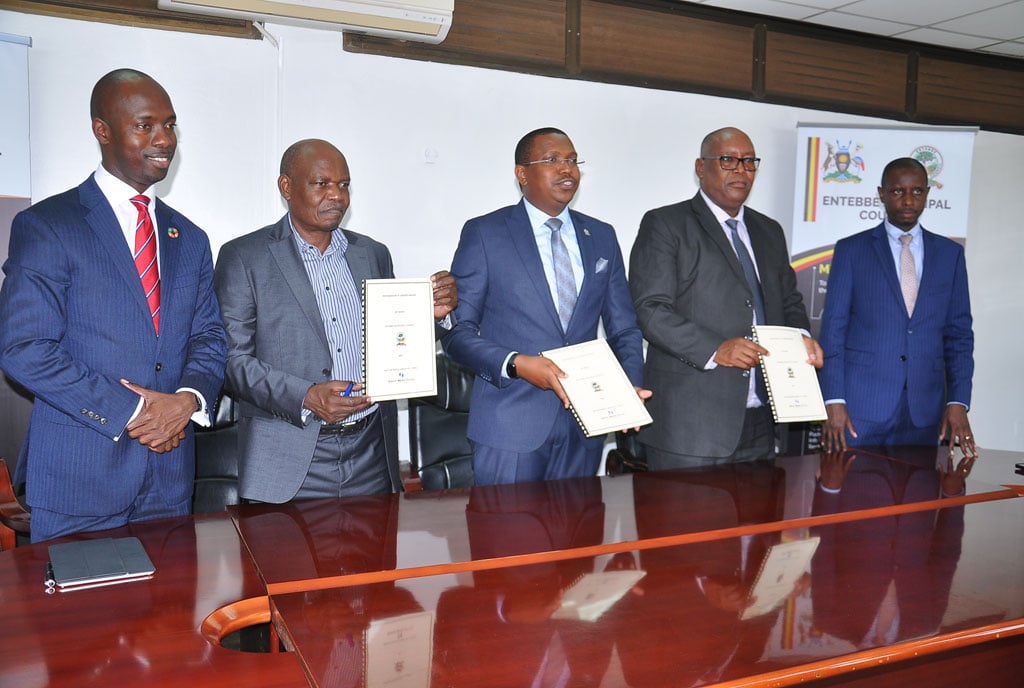Prime
Hundreds turn up for NMG-U medical camp

People line up for services at the medical camp at La Memorial Medical Centre in Lubowa, Wakiso District, yesterday. PHOTO/KARIM MUYOBO
What you need to know:
- Early signs present at six to eight months, with swelling of the hands and feet in the first year of life.
About 600 people have received free medical services at La Memorial Medical Centre in Lubowa, Wakiso District.
The two-day camp, which was organised in partnership with Nation Media Group (NMG) Uganda, Abacus Pharma and KBC Bank, mainly focused on counselling, testing and treatment for diseases such as cancer in children, sickle cell and haemophilia.
Speaking at the event, Ms Lydia Oile, the chief executive officer of La Memorial Medical Services, said the medical camp sought to help majority of the children who cannot afford the cost of screening and testing for the ailments.
“We know that blood diseases such as sickle cell have existed in the country for more than 50 years, but I have never seen a poster or an advert from the Ministry of Health on sickle cells disease in children,” Ms Oile said.
She, however, said the medical camp will be conducted annually in the first weekend of April because they have seen the need for it after a big turnout.
She also appealed to the Ministry of Health to create awareness weeks for sickle cell disease just as they have done for others such as Covid-19, tuberculosis and HIV/Aids.
Dr Ntale Theopista, a doctor at La Memorial Medical Services, said sickle cell anaemia is an inherited condition where red blood cells become sickle-shaped, causing many complications. She explained that the red colour of blood is made up of a pigment called haemoglobin, which carries oxygen to body tissues for normal function and removes carbon dioxide.
Sensitisation
“Normal haemoglobin is AA, carriers have AS and sickle cell patients have SS. Haemoglobin S is abnormal and it causes the red cells to form sickle shapes and clog blood vessels. This causes pain, can lead to organ damage and increased risk of infections,” he said.
Ms Teddy Namutebi, 56, who was screened for sickle cell, said this was an opportunity for many low income earners who could not afford the cost of screening in hospitals. “It is my second time to treat my daughter for sickle cell because she has been feeling sick for the past one month. I do not take health for granted,” she said.
Ms Deborah Naseka 38, another resident from the same area who was screened for sickle cell, thanked NMG Uganda and La Memorial Medical Services for the initiative. “Whenever there is another chance, I will screen again. In my family I have never seen anyone suffering from the disease,” she said.
Sickle cell symptoms
Early signs present at six to eight months, with swelling of the hands and feet in the first year of life.
Sickle cell patients have low blood levels (anaemic), yellow eyes, especially when dehydrated, delayed growth, abnormally big heads, stroke and men usually have uncontrolled painful erection. Others may have ulcers and bone infections.
Dr Ntale appealed to parents to go for early screening because most parents do not know the fate of their children.





